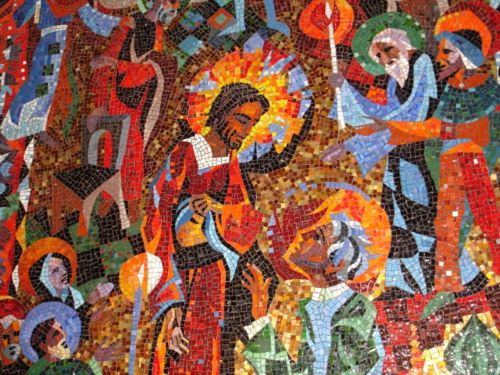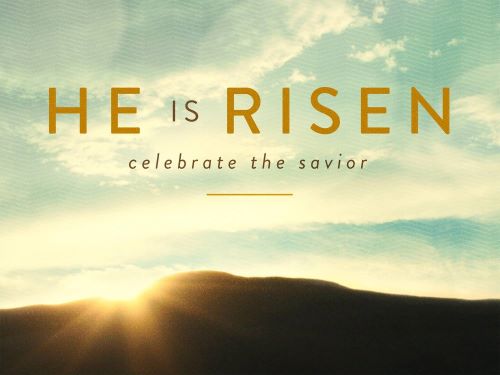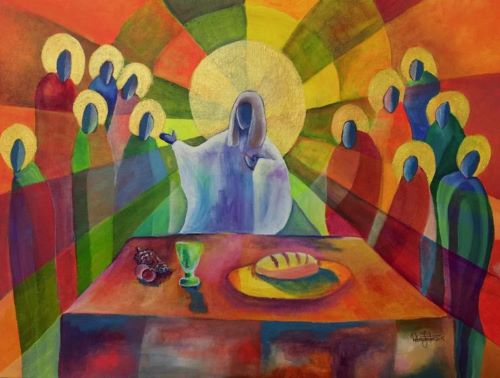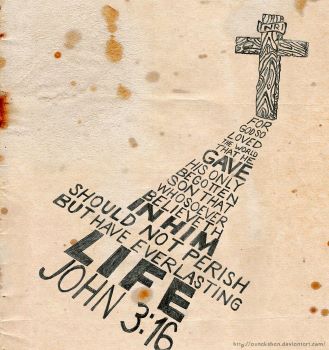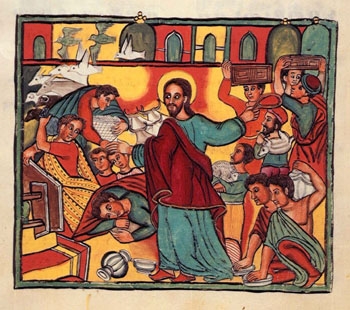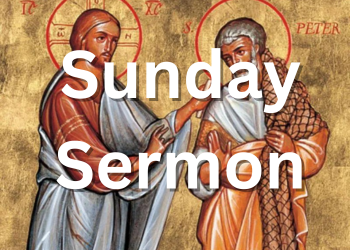Knock Three Times
Year C
Genesis 18:20-32
Psalm 138
Colossians 2:6-15
Luke 11:1-13
May the words of my mouth O God… speak your truth…
O God… let me pass this test… and I promise I’ll go to church every Sunday for a year… O God… let me just make it to the gas station… and I promise I’ll always remember to fill up before I set out… O God… let me win this lottery… and I promise that I’ll give more than 10% of my winnings to the church… O God… O God… O God…
O the promises we make to God… hoping to get what we want… and into this mix… are voices which tell us that the exact words we speak with our lips or in our hearts… can make or break a prayer… as though prayer was some kind of incantation… that there are prescribed positions for our bodies… or that we need to envision… with as much detail as we can… the results we want for ourselves or others…
The effectiveness of prayer is mystery… we know that sometimes prayers are… or seem to be answered… and sometimes they’re not… and so it makes me wonder… is God a vending machine… and are prayers quarters… because if we believe that… then we must at least sometimes believe that prayer changes God’s mind about us… when what may really be going on… is that prayer can also change our minds about God… and if our minds are changed… our actions will follow… and so maybe we simply ought to pray for God’s best outworking for every situation… but then… on the other hand… it’s been demonstrated that when a scientist’s conscious attention is focused on an experiment… that the results are different… than when their attention is not focused… so it may be a mysterious combination of both things… that our prayers may be answered… or our minds may be changed… so has anyone ever run out of gas alongside the road… and did you pray that you wouldn’t…
I don’t think our reading from Genesis is intended to teach us how effectively Abraham said his prayers… and that it changed God’s mind about him… it’s an exchange… it’s a form of Jewish haggling… a form of midrash which demonstrates God’s grace… which demonstrates God’s desire to be in relationship with us… and for us to be in relationship with each other… because according to Ezekiel… the sin of Sodom was not the sin conservative evangelicals like to think it was… the sin of Sodom was the sin of being inhospitable… in Ezekiel 16:49… God said… the guilt of your sister Sodom was that she and her daughters had excess food… prosperous ease… and were prideful… but did not aid the poor and needy… did not love their neighbors as themselves…
But Abraham appeals not for the judgement he might like to see… but in the unfolding back and forth… to the character of God… knowing that God’s testimony will be made manifest through God’s actions… and that’s why he could be persistent… like the man who came at night and knocked… and according to information I found on a Jewish website… at least according to tradition… if someone wants to convert to Judaism… and asks the rabbi… according to Jewish law… the rabbi must say “No” the first three times… but if that person persists… the rabbi will do it… and Abraham intervened more than three times on behalf of Sodom… he becomes… in effect… a satan… an accuser against God… and asks… Are you really going to do this… are you really going to sweep away the righteous with the unrighteous… are you really going to discount the value of even ten righteous people as nothing… and destroy them too… ] and it can be easy… in our human arrogance… to think that Abraham convinces God to spare Sodom… it can be easy to believe that God is enlightened by the logic in Abraham’s argument… that it’s only because of the relationship that Abraham and God have… because God had already reckoned Abraham as righteous… but maybe the story is intended solely… for Abraham… and us… to discover how compassionate God already is… how forgiving God already is… and for us to realize how forgiving we are not…
In Family Systems… we understand shame to be the emotion which lets us know that we have exceeded the limits of our humanity… and have wandered into God’s realm… but the Greek word which has been translated as persistent… also means shameless… which in this context means… acting like God… so perhaps the one who came knocking… is God… and is legitimately shameless with us… and persistent… and while we and our families lie in the warmth of our beds… God knocks on the doors of our comfort… for us to help feed our neighbors… by sharing three loaves of bread… because when we have a deep relationship with someone… we don’t need to test that relationship… we can expose our vulnerability… and safely ask for what we need… ] as Christ Jesus… though he was in the form of God did when he emptied himself… and took on the form of a slave… a servant… and taught them to pray… Father… hallowed be your name…
T. Denise Anderson… a Racial Equity and Women’s Ministries director for the Presbyterian Church USA writes… consider the personal and political dynamics in how The Lord’s Prayer begins… we say it so much that we may not realize how revolutionary it was for Jesus and his disciples to say these things… ] their community was under Roman occupation… Julius Caesar was given a title of divinity after his assassination… and his son… Caesar Augustus… capitalized on that title while he was still living… called himself the son of god… which he then leveraged to overcome his political rivals… and it’s into this context that Jesus teaches his disciples how to pray…
Jesus subverts Roman power with the treasonous claim that he is God’s son… and in teaching his disciples to pray this way… Jesus passes that distinction on to them… because if they say Father… then it is they and not Caesar… who are Children of the Living God… and if God is your parent… and it’s the duty of parents to care for their children… then God is obligated to care for us… and so it’s no wonder that God is persistent in knocking on our doors… when like teenagers… we withdraw from the family… hole up in our bedrooms… and think we know it all… until our parents insist… and persist… that we come down for dinner… and re-enter community…
and until we pray for God’s kingdom to come… and for God’s will to be done… on earth and in heaven…
And as Fr. John Meulendyk reminds us… we need to remember the sins that are often committed as we conform to the way things should be… Jesus was the person who broke all social norms… and yet we do not consider him a sinner… so part of the work we are called to do is to consider how today’s social norms, rules, and regulations prevent us from addressing social injustices…
In the Gospel… we are given a comparable example of persistence… for three loaves of bread… but more importantly… for the bread of forgiveness… that we must ask for daily… so are we willing to ask God for what God can give us… instead of what we want God to give us… are we willing to let the Spirit pray for and in us… even when we have run out of words to say… are we willing to let God cling to us when we’ve lost the strength to hold on to God… and are we willing to accept that forgiveness… and let it change our lives… we may not always succeed… but it is part of the work that we’re called to do… Holy God… make it so…

